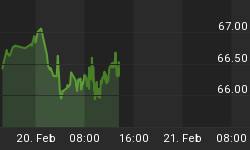Any American watching cable TV over the past few months can hardly fail to have noticed the seemingly ubiquitous advertisements extolling the virtues of extracting oil from Canadian oil sands, which the commentators assure their audience has a carbon footprint largely comparable with traditional fossil fuels, and which, if developed will provide not only millions of new jobs but billions of dollars for governments as well as energy security by weaning the Western Hemisphere off its addiction to terrorism-tainted Middle East oil.
But don’t break out your checkbook just yet.
Apparently those pesky Eurocrats in Brussels haven’t gotten the message, as on 4 October the European Commission proposed that oil sands crude be ranked as a dirtier source of fuel compared with oil from conventional wells.
The move has unsettled Ottawa, as all of the world’s oil sands reserves are in northern Alberta and Saskatchewan. While Canada does not currently ship any of its oil sands production to Europe, the Canadian energy industry is alarmed that Europe’s green anti-oil-sands policy could influence other global areas, such as Asia, where Canada hopes to develop a market for its oil sands crude exports.
Canadian Association of Petroleum Producers vice-president of oil sands and markets Greg Stringham said, “The concern for us is one of principle and precedent. The importance of it in the EU for us is that it could set a precedent on which others then build their policies,” adding that the EU is playing favorites, as it imports oil from Nigeria and Russia, whose energy products have similar greenhouse gas emissions as oil sands.
The European Commission's decision came after lengthy internal debate, but the body ended up recommending that oil sands-derived fuel be given a greenhouse gas rating of 107 grams per megajoule, roughly 20 per cent higher than the 87.5 grams assigned to fuel from conventional crude oil. A bill containing a fuel-quality directive (FQD) targeting oil sands imports is due to be presented to the European Parliament for a vote later this year.
It’s a largely symbolic gesture, as according to Canada’s National Energy Board, 98.5 percent of Canada’s first quarter 2011 oil sands exports went to the United States.
But it’s the principle of the thing, and Ottawa is now threatening to retaliate in the area of Canadian-EU bilateral trade, a not insignificant concern, as last year the EU imported about $26.8 billion of Canadian goods, while Canada took roughly $35.6 billion of EU imports.
Canadian Natural Resources Minister Joe Oliver while visiting Washington thundered against the European Union, saying the action would be "discriminatory" and could trigger a challenge before the World Trade Organization, adding, "Should the European Union implement unjustified measures which discriminate against the oil sands, we won't hesitate to defend our interests. They are doing it believing, apparently, that there is no downside."
In a more conciliatory tone Oliver noted, "The government of Canada does not object to the fuel quality directive goal of reducing emissions for transportation fuels. However, we do object strongly to discriminatory treatment that singles out oil sands-derived fuels without scientific justification... We don't like the potential stigmatization and we don't think it is justified."
Not every Canadian is incensed with the European Commission’s actions however. Climate Action Network Canada Executive Director Graham Saul said that the decision "sends a clear signal that no amount of aggressive lobbying can counter the scientific fact that tar sands are one of the world's dirtiest fuels."
But left unsaid is that the larger issue for Canada is not either the EU or even Asia, but – the U.S., where opposition is rising dramatically to Calgary-based TransCanada Corp.'s proposed $7 billion Keystone XL pipeline, which would transit up to 830,000 barrels of oil per day from Hardisty, Alberta, to refineries on the Gulf Coast of Texas. Environmental groups in such stalwart Republican states as Nebraska are up in arms over the proposal, fearing that a leak from the underground pipeline would irrevocably pollute the Ogalla Aquifer, source of much of the Great Plains’ agricultural water.
ADVERTISEMENT
In weeks of protest in Lafayette Square opposite the White House, more than 1,250 demonstrators have been arrested objecting to the pipeline. So the Canadian government is essentially venting its frustration on Europe while keeping its eyes firmly focused on Washington, where the real battle has begun. It’s enough to put a patriotic Canadian right off his croissant – unless it’s made in Quebec.
By. John C.K. Daly of Oilprice.com
















